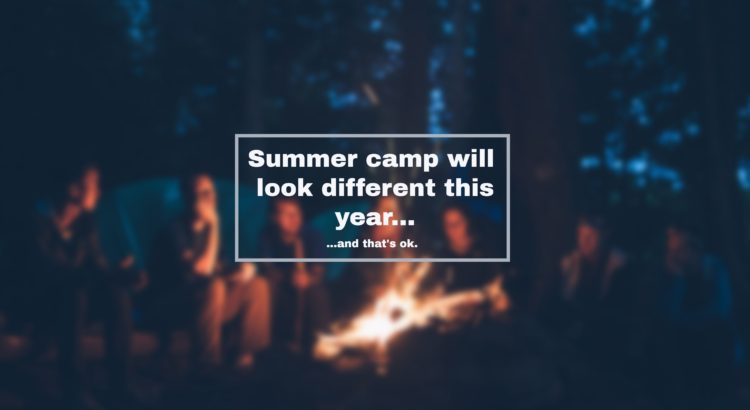Even with the most rapid progression of reopening scenarios, summer camp will look different across the country this year. And that doesn’t have to be a bad thing.
I am hopeful that camp directors and staff will adapt creatively to the changes that have invaded our world due to the Coronavirus pandemic. These changes will bring:
- Renewed commitment to our mission, and to camping as a model to achieve that mission;
- Stronger emphasis on rest and retreat as part of the camp experience;
- Deeper expression of the value of relationships among campers and staff, and with caregivers and donors;
- Appreciation for the important role seasonal staff and camp counselors play in the mentoring and discipling youth; and
- Realization of the necessity of maintaining a healthy financial position, in order to whether the storms.
These changes are the natural result of the kinds of questions I – and camp directors across the country – have been forced to ask and answer while we wait for guidance and direction from our federal, state and local governments.
If we could only do one thing this summer, what would we do?
It’s a question at the core of understanding our mission. For me, it’s trying to figure out how we can bring to camp the kids who are falling through the cracks, the ones who lack supportive adults in their lives, the youth who wouldn’t be successful at any other camps. It’s the question that has motivated us to hang on while we wait for any possibility that we could open camp this summer… and why we’ve launched some individual, virtual experiences for some of our regulars at camp.
Answering this question doesn’t mean that the other things we do aren’t important – even vital to who we are and how we operate. But it’s been helpful for me to be reminded that at our core, we serve, value, and equip children and families for success… through God’s help and love.
If we can’t do _____, what can we do?
So many camp activities seem to be falling into the column of prohibited activity. Camp is about being together… close together. It’s about breaking down barriers. It’s about lending a hand when someone else is struggling. It’s about eating together.
And we start to wonder… can we do crafts? Can we play 9-Square? Can we share a ball? A helmet? A cabin? A tent?
And while we may not know yet if we’ll be able to do these things at camp… we do know that many of us, stuck at home, have realized we don’t need a lot of stuff to enjoy being outside. We can walk. We can look at the clouds or the stars. We can hunt for rocks, relax in a hammock, and rest. And I am hopeful that we will be able to incorporate more of that into our camp schedules in the years ahead.
How can we do camp in very small groups?
I’ll be honest, part of the fun of being at camp is being in a group… and sometimes a big group. Kids love the “large group games” and the chapel times. But I am becoming more convinced that what kids really love is focused attention from an individual adult. They love it when our camp counselors talk just to them, walk with them, and play just with them. And I am excited to see us return to the intensity of relationship and sharing that happens in very small groups.
One of my camp director friends is planning to have camper sit in “pods” with their cabin group at chapel times… maybe even in a circle painted on the floor… far enough away from other cabin groups that they could talk to each other, hear each other, support each other, and learn from each other… without having to try and impress everyone else around them.
I think there’s great promise for bringing back a more decentralized approach to camping.
How are we going to staff this?
Again, it’s a challenge camps have been facing for years as college students and young adults have more options, and high ambitions, for their summer. And while we consistently hear that working at a summer camp is one of the most formational experiences in a person’s life, it’s consistently hard for camps to hire enough staff to do the work they are called to do.
Yesterday I saw the news that one of our universities here in Michigan will be starting two weeks early, and “condensing” and “accelerating” their fall and spring semesters in the coming year in order to minimize student travel. If this becomes a trend, it could add further challenge to staffing camps in the late summer season… and, on the other hand, could make young adults more available in the weeks between Thanksgiving and New Year’s to serve campers in non-summer programs.
Whatever it means, it is a great reminder to value, to love, and to support those young adults who do join us on our mission. We have found that, in engaging our staff early via Zoom meetings, we have fostered a level of commitment to our program (and to one-another) that we don’t often see until much later in the summer.
Can we survive this?
At the end of the day, our camps have to pay the bills too. And these times have showed us that good stewardship, careful planning and budgeting, and healthy donor engagement will help all of us be able to continue our mission for years to come.
We can survive this. And we will come through it stronger and healthier than we ever dreamed possible.
In camp, ministry or business, what are the questions you’re asking? And how are they helping you to grow?

Here are six ways you can support your favorite camp this summer.
